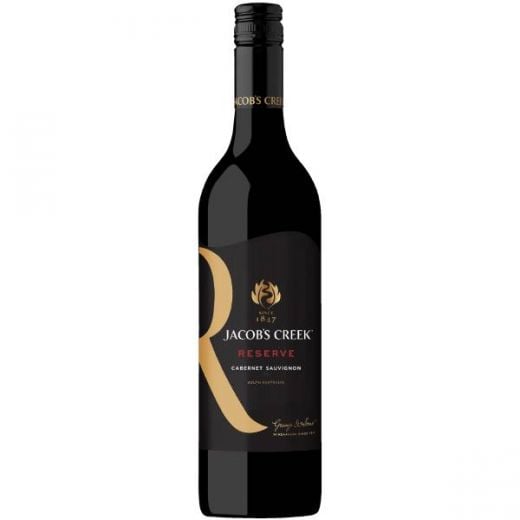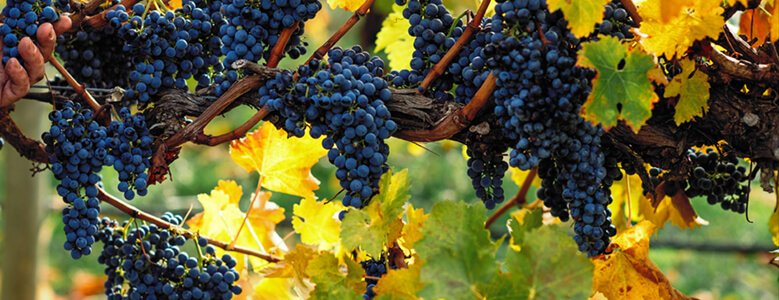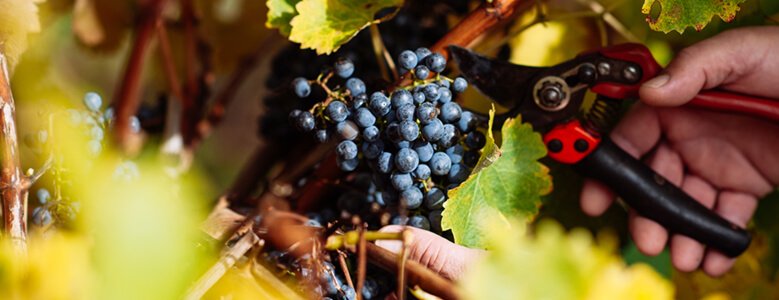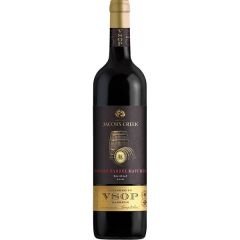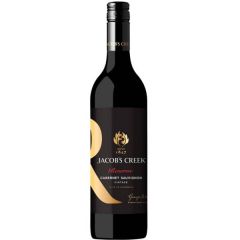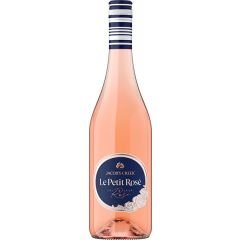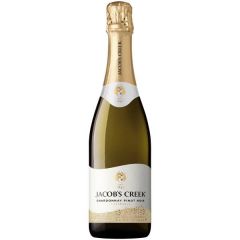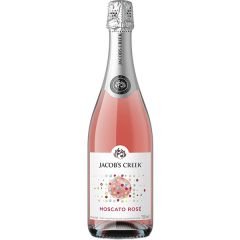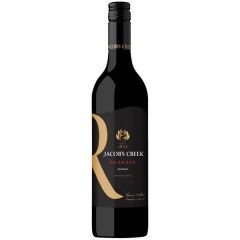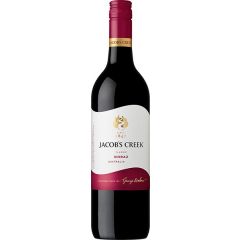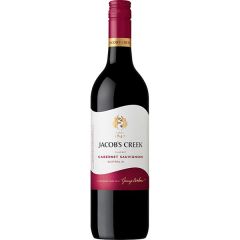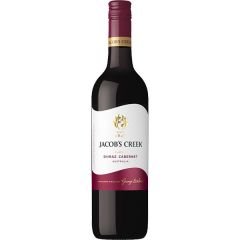Jacob's Creek Reserve Coonawarra Cabernet Sauvignon (750 ml)
Premium wines that capture the character of Australia’s best wine regions.
Wine Score : 4 STARS, Michael Cooper - noted.co.nz (Jun-18)
Award : SILVER, New York International Wine Competition 2018
พันธุ์องุ่นผสม (Grape Blended)
รสสัมผัส (Palate)
สี (Colour)
กลิ่น (Aroma)
รสสัมผัส (Palate)



Each wine in our Reserve range is made by selecting premium quality fruit from one of Australia’s best wine regions for each region to make wines with great varietal expression.
THE STORY OF JACOB CREEK
Jacob Creek from Australia In 1847, along with the banks of Jacob’s Creek, Johann Gramp planted his first vineyard. His vision was to create great tasting wines that reflect the true character of the grapes and the land. To this day we live and breathe this vision by producing wines that showcase how each grape variety expresses itself when shaped by the soil and the sun of Australia.

Awarded with 3 gold medals from international wine and spirits competition. Such as, 2014 WSA Wine Challenge, 2013 China Wine & Spirits Awards and 2014 Pacific Rim International Wine Competition.
WINE MAKING PROCESS OF JACOB CREEK RESERVE
1 ) THE FIRST TASTE, ON THE VINES
Our viticulturists and winemakers visit every the vineyard to taste the fruit and determine the optimal time to start harvesting.
2 ) THE HARVEST
Grapes are picked. Most are picked with a harvester to minimise the time it takes to get the grapes to the winery to best retain freshness of the fruit. Some are picked by hand during the day, such as the old delicate vines or where the site is too steep.
3 ) THE TRANSFER
Time is critical. We fill the grape bins in the vineyard and take the grapes by truck to our winery as soon as possible.
4 ) THE DE-STEMMER
The de-stemmer gently removes the stalks from the grapes
5 ) THE FERMENT
Reds are fermented on skins, as it’s the skins that contribute most of the colour and tannin to the wine. Yeast is added and fermentation takes place under the careful watch of our winemakers. Individual parcels are fermented separately, so the timing varies. Typically, a parcel destined for our Reserve Shiraz spends around 10-12 days fermenting before it is ready to be pressed.
As the juice ferments, bubbles rise to the surface and carry grape skins with them. They can form a ‘cap’ which needs to be broken up using processes such as ‘pumping over’ (pumping the wine from the bottom to the top) and occasionally ‘pushing down the caps’ (with a plunger). This also maximises the extraction of colour and tannins.
6 ) THE PRESS
After primary fermentation, red grapes are then pressed to separate out the wine from the skins and pulp.
7 ) MALOLACTIC FERMENTATION
All of our red wines undergo malolactic fermentation, a natural process where malic acid is converted to softer lactic acid. Some parcels of our premium red wines are selected for barrel maturation to add oak nuances and texture, and to soften tannins.
8 ) OAK MATURATION
Depending on the desired wine style, the wine is left to mature on oak for a period of 6-24 months. Aromatic-styles, such as Pinot Noir with its inherently softer tannins spends less time on oak, while more assertive styles such as, young Cabernet Sauvignon spends more time on oak.
9 ) FILTRATION AND BOTTLING
Through filtration, the wine takes its final, clear and bright form. This is done with the lightest touch possible to deliver you a wine that showcases the character of our regions.
We bottle our reds mostly in screw cap for preservation of quality, and a small quantity also in traditional cork for the few countries which prefer it.
10 ) BOTTLE MATURATION
After bottling, some premium reds are left for a further period, to mature perfectly before being released for sale. The timing is determined by the winemaker who considers when the flavours have become well-integrated and the wine has entered the start of its ideal drinking window.
With the premium nature of our Reserve range, it is well suited to medium-term bottle maturation. With a few years of careful cellaring, the wine can evolve, during which the overt fruit flavours will become subdued and more savoury complexity will develop.

